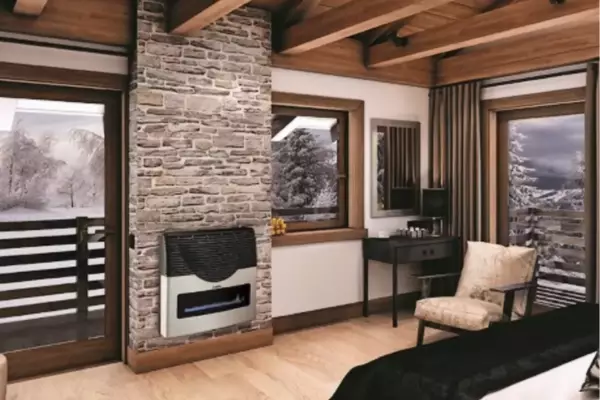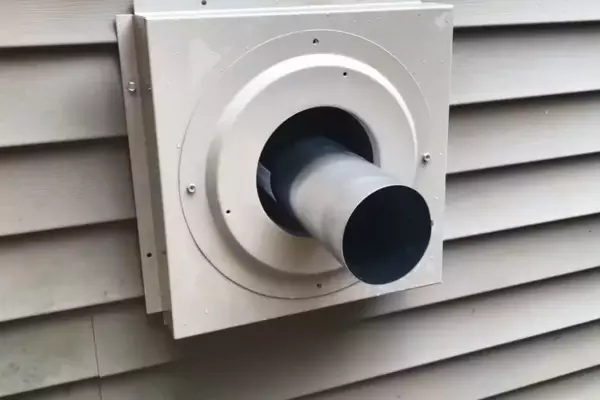Heating systems, especially propane heaters, play an integral role in maintaining a warm and cozy environment. However, they require attention to safety measures, of which proper ventilation stands paramount.
Ventilation for propane heaters is not a simple topic. It’s not just about preventing suffocation; it’s about ensuring a safe and healthy environment while enjoying the benefits of a propane heating system.
The principle of using propane heaters revolves around the right balance of heat production and oxygen consumption. Proper ventilation allows this balance to take place, ensuring efficient heating and mitigating potential health hazards.
Contents
The Importance of Proper Ventilation
Heating systems that use propane as a fuel source, such as propane heaters, pose safety challenges if not used with the proper ventilation measures. These challenges mainly stem from the oxygen consumption of propane combustion and the resultant by-products.
In the combustion process, propane heaters consume oxygen and produce carbon dioxide, water vapor, and in incomplete combustion scenarios, carbon monoxide—a hazardous gas. Adequate ventilation helps to replenish the oxygen supply and remove harmful gases, thus safeguarding occupants from potential health risks.
Insufficient ventilation can lead to oxygen depletion and a build-up of harmful gases, such as carbon monoxide, posing significant health threats. These risks underline the importance of understanding the ventilation requirements of propane heaters to ensure their safe and effective operation.

Propane Heater Categories and Ventilation Requirements
The ventilation needs of a propane heater largely depend on its type. Here, we discuss three common categories: vent-free, direct-vented, and outdoor propane heaters.
Vent-Free Propane Heaters
Vent-free propane heaters, as the name suggests, do not require external venting. They are designed to burn propane efficiently, reducing the risk of carbon monoxide production.
However, they still consume oxygen and produce water vapor and carbon dioxide, which can lead to increased indoor humidity and a stuffy atmosphere if the room is not adequately ventilated. As a precaution, it’s advised not to use vent-free heaters in small, enclosed spaces and to operate them in well-ventilated rooms only.
Direct-Vented Propane Heaters
Direct-vented propane heaters need a vent or chimney to expel combustion gases outside the building. These heaters pull in air from outside for combustion and vent the by-products back outdoors, thus maintaining the room’s oxygen levels and preventing the accumulation of harmful gases.
Properly installing and maintaining the vent system is crucial for the safe operation of direct-vented heaters. The vent should be free of obstructions, and regular inspections are necessary to ensure no leaks or damages.
Outdoor Propane Heaters
Outdoor propane heaters are typically designed to provide heat in open-air settings, such as patios. Given their outdoor usage, ventilation is generally less of a concern. However, safety precautions still apply. For instance, operating the heater in a confined or enclosed outdoor space can lead to similar risks as indoor heaters if adequate ventilation is not provided.

Factors Influencing Ventilation Needs
Several factors influence the ventilation requirements of a propane heater, primarily the size of the room and the heater’s capacity.
Room Size and Volume
The volume of the room plays a significant role in determining ventilation needs. Larger rooms typically require more heating but also offer more space for air circulation, potentially reducing the need for additional ventilation. The recommended heater size for a room can be calculated using the room’s volume.
Heater Size and Capacity
The heater’s capacity, often expressed in BTUs (British Thermal Units), also influences ventilation requirements. Higher BTU ratings correspond to more heat output and, consequently, more oxygen consumption and by-product production. Therefore, larger heaters necessitate better ventilation strategies.
Optimal Ventilation Strategies
Achieving optimal ventilation is key to safe and efficient propane heater use. Here are some strategies to consider:
- Ensure sufficient air exchange: Regular air exchange is necessary to replenish oxygen and remove combustion by-products.
- Use mechanical ventilation: If natural ventilation is insufficient, mechanical systems like exhaust fans can help improve air circulation.
- Regularly check and maintain your venting system: This is crucial for direct-vented heaters. Inspections should be conducted to ensure the vents are free from obstructions and damages.
Frequently Asked Questions
Is it safe to sleep with a propane heater on?
Propane heaters are safe as long as they are used correctly and have the necessary safety features, such as an Oxygen Depletion Sensor (ODS) and automatic shutoff. However, they should not be left unattended for extended periods, including while sleeping.
Do all propane heaters need ventilation?
While all propane heaters benefit from good ventilation, the requirements vary. Vent-free heaters, for instance, don’t require external venting but should be used in well-ventilated rooms. Direct-vented heaters need a dedicated venting system, while outdoor heaters generally have fewer ventilation concerns.
How can I tell if my room is properly ventilated?
If your room is experiencing high humidity levels, a stuffy atmosphere, or the heater’s flame is burning with a yellow or orange color, it may not be adequately ventilated. These are all signs that the combustion gases are not being effectively removed.
Conclusion
Proper ventilation plays a pivotal role in the safe operation of propane heaters. It ensures an adequate oxygen supply for combustion and prevents the accumulation of harmful by-products, such as carbon monoxide.
The ventilation requirements vary depending on the type of propane heater and other factors, such as the room size and the heater’s capacity. As such, understanding these factors is critical to ensuring effective and safe propane heater use.
Finally, it’s always prudent to consult with heating professionals when choosing a propane heater and planning its ventilation. By doing so, you’ll have a heating system that not only meets your needs but also provides peace of mind in terms of safety.

